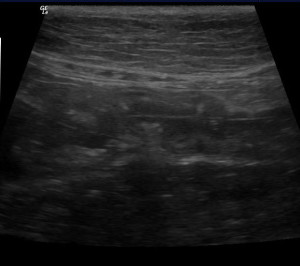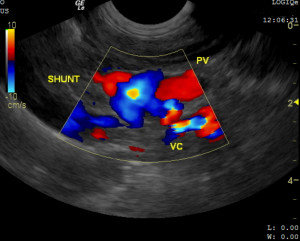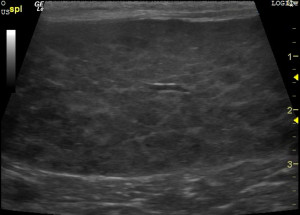Abdominal Ultrasound
The advanced diagnostic technique of ultrasound has become a standard of care in veterinary medicine allowing the veterinary practitioner the opportunity to opt for less invasive testing. The speed and accuracy of results frequently outweigh the client & patient stress, expense, and pain of more invasive and expensive diagnostics and surgery.
Abdominal ultrasound is the perfect modality to image the liver, gallbladder, biliary system, stomach, pancreas, spleen, kidneys, adrenals, bladder, prostate, uterus, ovaries, bowel, vasculature, lymph nodes, mesentery & serosal surfaces. Additionally, we can also image the thyroid and parathyroid glands.
We do not offer partial exams, all organs must be examined every time to ensure there is not occult pathology.
An abdominal ultrasound will look for causes of common diseases and clinical signs such as:
- Liver disease
- Enlarged liver
- Jaundice
- Kidney failure/kidney disease
- Bladder infections and or stones
- Blood in the urine and inappropriate urination
- Prostate infections or enlargement
- Enlarged spleen
- Excessive drinking and urinating
- Cushing’s disease/adrenal disease
- Vomiting
- Diarrhea
- Blood in the feces
- Abdominal pain
- Weight loss
- Lethargy
- Anorexia (not eating or decreased appetite)
- Pancreatitis
- Cancer search or staging for treatment
- Infections
- Anemia
- Ascites (fluid in the abdomen) and pleural effusion (fluid around in the lungs)
- Sampling masses or fluid accumulation
- Abnormal laboratory values (example – liver enzyme elevation, anemia, elevated white blood cell counts)
- Pregnancy detection





